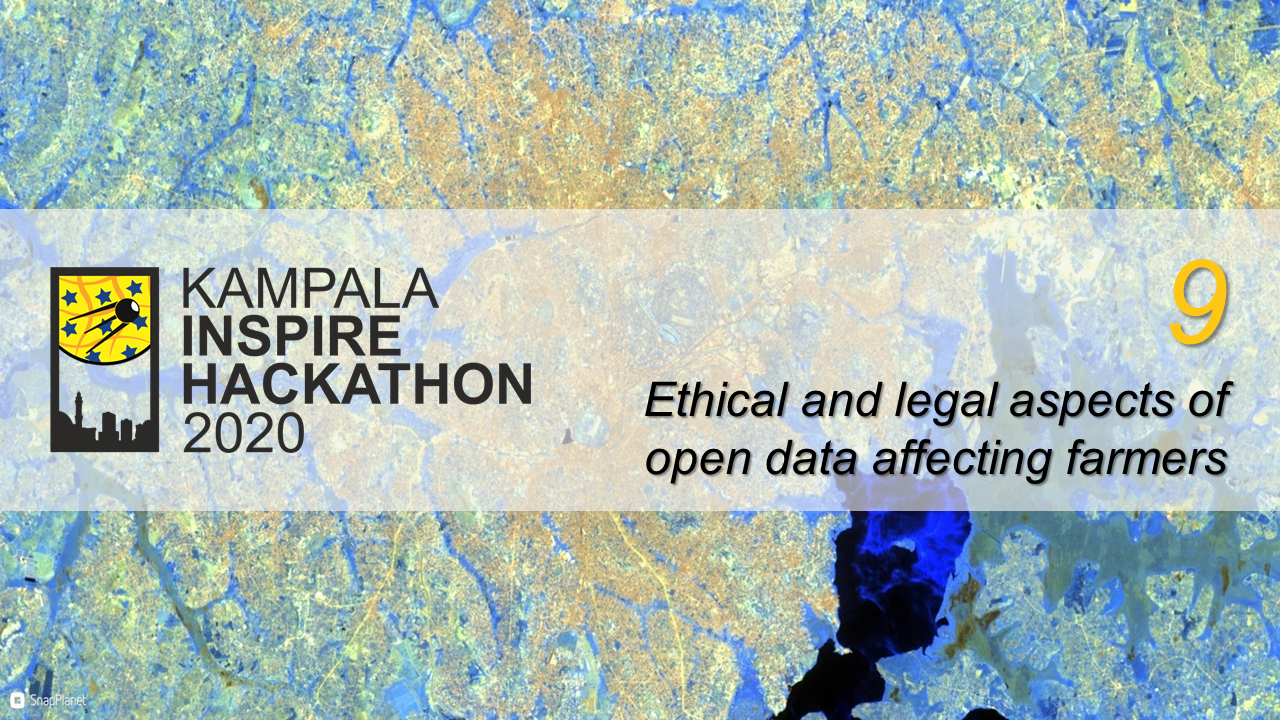This is a description of Challenge No. 9 of the Kampala INSPIRE Hackathon 2020 led by Foteini Zampati, Alice Namuli, Chris Addison . For more information about mentors see the link.
Open Data offers a great potential for innovations from which the agricultural sector can benefit decisively due to a wide range of possibilities for further use. However there are many inter-linked issues in the whole data value chain that affect the ability of farmers, especially the poorest and most vulnerable, to access, use and harness the benefits of data and data-driven technologies.
The use of open data in agriculture is associated with some technical, ethical and legal challenges.
The technical challenges are associated with the need to create and develop new standards, platforms and infrastructures to allow access and better use of the data according to FAIR principles. In the last couple of years, the use of open data has also raised some ethical and legal issues as more and more stakeholders have entered into the agricultural sector developing new technologies that focus mainly on the collection, analysis and management of agricultural data. These ethical and legal aspects related to accessing and using data by the farmers and sharing farmers’ data have been less explored.
Smallholder farmers face challenges due to a lack of trust and transparency on issues such as data ownership, data rights, consent, data privacy, data security and definitional issues such as what data should be considered personal or not. Moreover, the contracts and licensing agreements that currently govern data transactions are complex, leaving smallholder farmers with very little negotiating power.
We aim to identify gaps and address ethical,legal and social challenges among other such as the digital divide. Our main objective is to develop a better understanding on ownership and control of agricultural data, data governance, explore the role and responsibilities of stakeholders in the data value chain. In addition we will highlight the often-complex legal issues related to open data in the areas of law, data rights,policies,codes of conduct, data protection, intellectual property rights, licensing contracts, traditional knowledge and personal privacy and finally do some recommendations and develop solutions through policy and legal frameworks to help ensure a fairer distribution of the benefits of open data, increasing motivation among actors involved in agriculture and nutrition, to use open data and make it more readily available.


